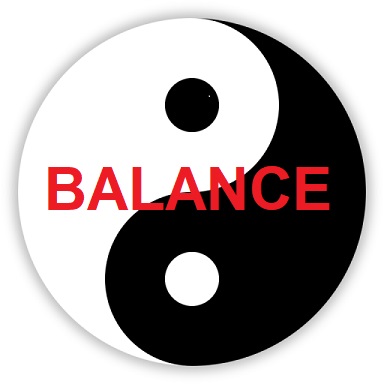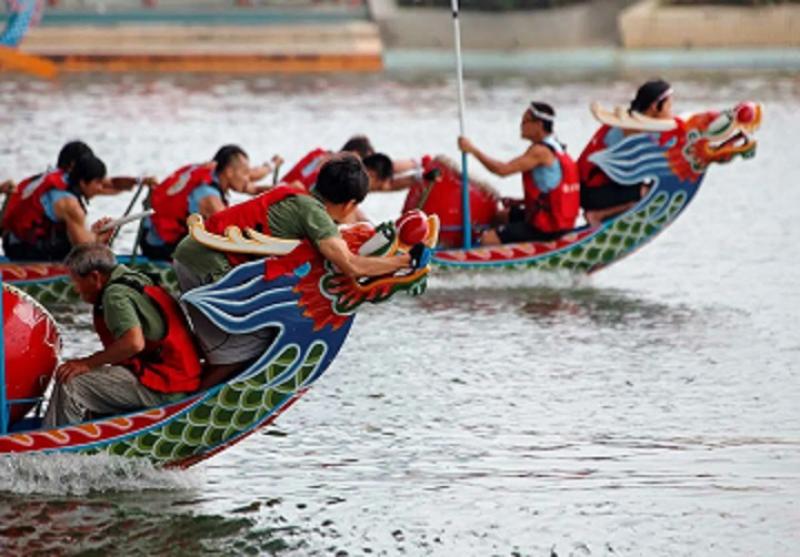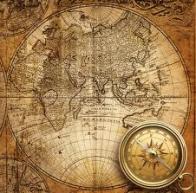Zhonge Festival – February 21, 2023
By: No Author Indicated
BUZZ NOTE: The image with this article is wrongly included for the Zhonge Festival, but is actually relevant to the Dragon Boat Festival that follows later in the year. However, I will try to post some photos that are relevant to this festival in a comment below.

Zhonge Festival – February 21, 2023

The Zhonghe Festival is a Chinese tradition that has been celebrated for many centuries and this year will be marked on February 21 . This festival takes place on the first day of the second month of the Chinese lunar calendar. This means it falls in February or March according to the Gregorian calendar and depending on the year. The festival, also known as the Blue Dragon Festival, dates back to the Tang and Song Dynasties which reigned during the medieval period of China. It’s a traditional holiday celebrating the first signs of spring and the end of winter, and a sense of agricultural awakening.
HISTORY OF ZHONGE FESTIVAL
The Zhonghe Festival, also known as the Blue Dragon Festival or Longtaitou Festival, is a traditional Chinese agricultural festival. Longtaitou means ‘the dragon raising its head,’ a reference to the beast said to rule over all living things and more significantly, govern the rains.
The Zhonghe Festival traces its origin to the time the Tang and Song Dynasties were in power. The Dragon King, often called the ‘Dragon God,’ is believed to be the god of the elements of water and weather. He can appear in a multitude of ways. He is the god of the east; the essence of spring is represented by the Blue Dragon. The festival commemorates the ritual worship of the Dragon King who is believed to be responsible for spring rains. Farmers celebrate the Zhonghe Festival to anticipate good weather and plowing conditions for a successful harvest season. The Lord of the Soil and the Ground, ‘Tudigong,’ is still worshipped to this day. Followers of Taoism and Chinese popular religions have always revered this minor deity. ‘Jingzhe,’ the third solar period of the Chinese calendar, falls around the time of the festival. This ‘awakening of insects’ occurs when the land and its hibernating animals are awakened by the first warm hints of spring.
Many of China’s major cities, however, do not celebrate the Zhonghe Festival — it may not even be commemorated in certain hamlets or villages. The places where it is observed follow a variety of traditions. For one, the Dragon God is revered. Those who participate in this festival hope that the Dragon King or God will bring enough rain for a bountiful harvest.
ZHONGE FESTIVAL TIMELINE
The oldest and the first dragon statue is found during this time period.
During the Tang Dynasty, the Jade Emperor, wanting to punish the people, commands the Dragon King to stop the rain for three years to create a drought in the country.
The dragon is shown on the Chinese national flag.
The dragon is shown on the national emblem of the Twelve Symbols.
ZHONGE FESTIVAL FAQS
What is the Zhonghe Festival in China?
It’s a holiday closely tied to China’s ancient agrarian culture.
When is the Zhonghe Festival celebrated?
It is celebrated on the first day of the second lunar month to enable farmers to honor the Blue Dragon.
What similar holiday is celebrated in China?
The Dragon Boat Festival is a similar public holiday in mainland China. Also called the Double Fifth Festival, it is celebrated on the fifth day of the fifth month of the Chinese lunar calendar.
ZHONGE FESTIVAL ACTIVITIES
-
Clean the house
Sweep your house without having to fear ‘sweeping’ good luck brought by the Chinese New Year. This custom is believed to welcome new luck and fortune.
-
Enjoy dumplings and pancakes
Eat dumplings, pancakes, noodles, and popcorn. While enjoying these foods, wish for rain and bountiful harvests.
-
Get a haircut
Have your hair trimmed on this day. It is associated with the mythical beast's pride and power.
5 INTERESTING FACTS ABOUT THE ZHONGHE FESTIVAL
1. Needlework is a no-no
It is believed that when the dragon rears his head toward the earth, the needles may hurt his eyes.
2. Doing the laundry is forbidden
Doing laundry during the Zhonghe Festival is believed to injure the dragon’s skin.
3. Plant ashes are significant
Plant ashes are traditionally scattered around the home on this day, and when they are stored in an earthen jug, they are said to invite the dragon to bring rain.
4. Longtaitou comes from a Chinese proverb
Longtaitou, which means ‘the dragon raises its head,’ comes from the Chinese proverb, ‘Er Yue er, long tai tou.’
5. Different foods represent the Dragon King’s features
Dumplings represent the dragon’s ears, pancakes represent the scales, noodles represent the beard, and popcorn represents the seeds.
-
-
-
WHY WE LOVE ZHONGE FESTIVAL
-
It’s a centuries-old tradition
The Zhonghe Festival is a Chinese tradition observed for several centuries. It dates back to the Tang and Song Dynasties.
-
It’s a symbol of hope and prosperity
Farmers commemorate the Blue Dragon Festival to ensure adequate rainfall and plowing conditions for a successful harvest season. It is also associated with good weather.
-
It celebrates the Dragon King
He is revered as both a rainmaker and a zoomorphic emblem of the generation's young masculine force. In Chinese culture, he is the combined personification of the old notion of the lóng and is hence loved by all.
-
-
-
Tags
Who is online
37 visitors



Comments are subject to the Discovery Group RED BOX RULES which can be accessed by clicking this link -> or by clicking the Discovery Group avatar at the top right of the article page above, either of which will take you to the Discovery Group home page.
Political comments are off topic and will be deleted.
In order to comply with tradition, this morning I made my banana-blueberry pancakes for breakfast, and of course they were delicious.
I chose this particular article to post, although it is not from a Chinese source, because it explains this particular festival more clearly for westerners. Although we are in a big city and most city residents might not celebrate this festival, my wife grew up on a farm and presently has been growing vegetables in an area staked out near the nearby mountains, to which she goes almost every day. She just planted corn seed, and I am really looking forward to eating the results. My father had said that corn should be eaten as soon as possible after it is picked, e.g. on the same day, because the sugar in the kernels very quickly turn to starch.
These photos of celebrating Zhonge Festival are all taken from the internet.
I believe this first photo is from Xi'an, since I think that is the Wild Goose Pagoda in the background.
The Blue Dragon
.
Not that it means anything to anybody, I had a perfect Zhonge Festival food day. I ate the scales of the blue dragon for breakfast (blueberry pancakes), the ears of the blue dragon for lunch (dumplings), and the beard of the blue dragon for dinner (spaghetti made with rice noodles).